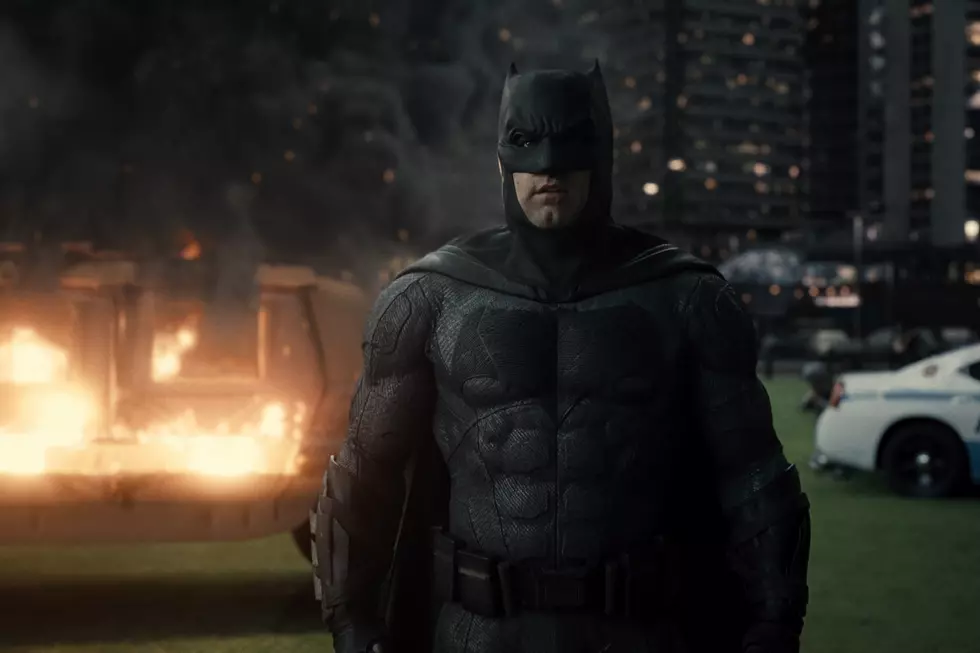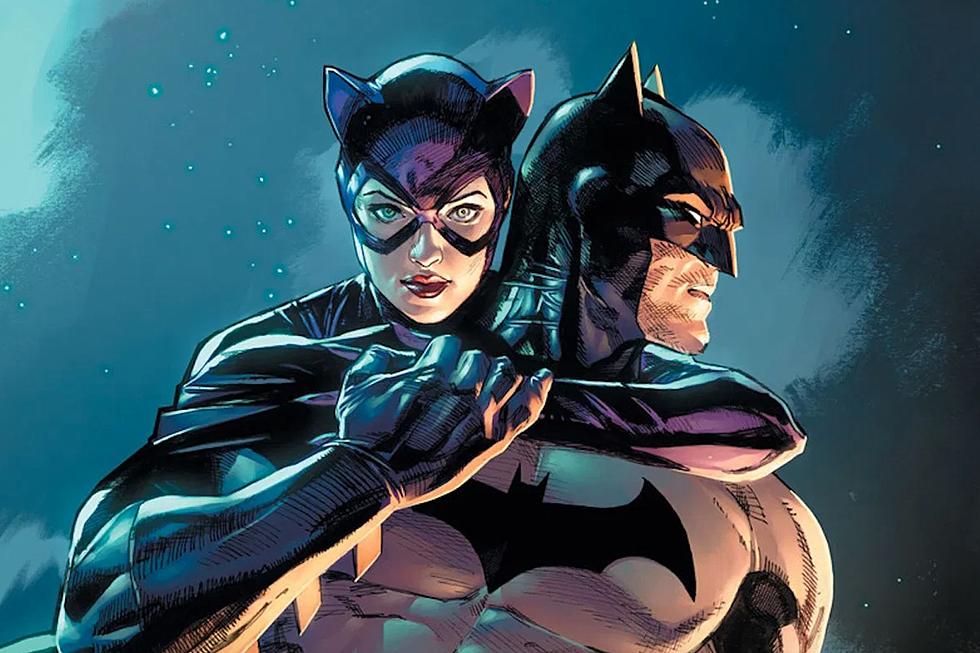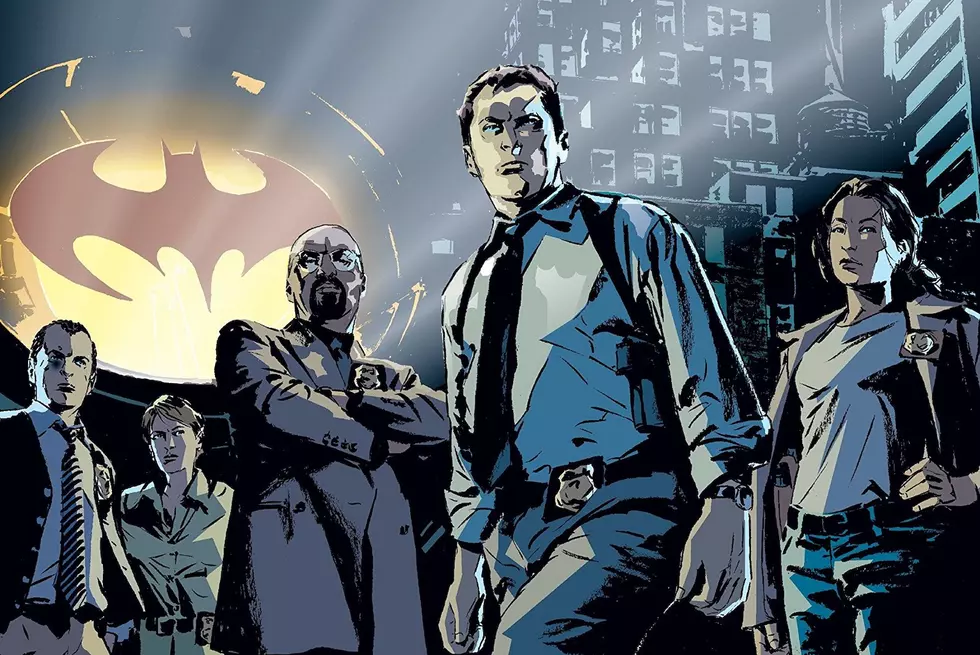
Ask Chris #285: Serious Lack of Chill, Or Do We Need To Know Who Killed The Waynes?
Q: Should there even be a Joe Chill, or does having it be an anonymous crook work better? -- @DavidMann95
A:If you've read this column before, it probably won't surprise you to find out that I've spent an awful lot of time thinking about Joe Chill, and to be honest, it makes sense that I would. Even beyond his role as the mugger who fired two shots in Crime Alley and left Bruce Wayne a very angry orphan, he's been a huge part of the Batman mythos over the past 76 years, weaving his way in and out of the story in some pretty bizarre and unexpected ways.
But I'm not sure that he actually makes it better.
Here's the thing about Joe Chill: Even if you aren't really sold on having him around, he's a hard character to argue against. The second that Bill Finger and Bob Kane put Batman's origin story down on paper and revealed that this guy has dedicated his entire life to waging an endless war on all criminals because someone stepped out of the shadows and shot his parents, they're raising the question of just who it was that pulled the trigger. It's the first thing you want to ask when you find out about that origin --- you want to know if Batman ever found that guy, if he was able to solve the one case that mattered more to him than anything else.
There's an inherent drama in that question that's pretty hard to beat. As fun as it is to see Batman battling it out with murder clowns and evil crossword puzzles, putting the focus on something personal adds an entirely new layer to the story. It brings in ideas of revenge, sure, but more than that, it brings in the idea of closure. It's the case that would haunt him forever if he never got a chance to deal with it, and if your argument against Joe Chill is that having him in the story makes it too much about revenge, doesn't it mean something that Batman chooses to continue once that personal business is all done?
Either way, all of those questions are inevitable from the moment that you introduce a mugger --- heck, they're in there from the moment that you introduce a bullet, because that thing has to come from somewhere --- and in retrospect, it's actually kind of surprising that it took Bill Finger and Bob Kane a full eight years to do it in the pages of Batman #47. But then, that might be because it's a really tough story to figure out.
In order for the story to have its proper dramatic effect, the mugger has to know that the child he left alive on Park Row has grown up to be the grim avenger that serves as the bane of the underworld. But since he also has to still be operating as a criminal, that introduces a pretty big problem, because you can't have some crook running around knowing that Bruce Wayne is Batman, and --- since Batman had given up killing almost a decade before --- you can't have Batman kill him, either. It's a lot to juggle, but the story they ended up with makes it work beautifully.
It's actually one of the best stories of Finger's considerably impressive career, and the way that he blends the superheroic action with the horror-comic irony of Chill being gunned down by his own men when they find out that he's the one responsible for the Batman --- something that they're already treating as this unstoppable force of nature that they hate and fear more than anything else in the world --- is amazing.
I should probably point out that one of the first Batman comics I had when I was a kid was that version of Untold Legend of the Batman that came with a radio-play version on cassette tape that recreated this scene almost exactly, and despite some extremely over-the-top voice acting, that's the kind of thing that sticks with you. If you're curious, you can hear it through the magic of the Internet right here, about 16 minutes into this video:
For some reason, while I remember almost everything else, I somehow forgot about that theme song.
Anyway, by any standard you want to judge it by, it's a great Batman story. But at the same time, it also provides the foundation for some pretty weird stuff that comes in later. The superhero genre's love of revisiting origin stories isn't anything new, and Finger himself was prone to tinkering with story elements that he'd already established in order to make them seem bigger and more exciting.
That's how we got Batman #235 and the reveal that the Wayne murders weren't the result of a random mugging. That's the story that introduces Lew Moxon, the mob boss who has a grudge against Thomas Wayne, who manages to skate on being brought in for the Wayne Murders because --- no foolin' --- he had amnesia and forgot about commissioning murders while still being a mob boss with no other ill effects.
The more famous part of that story is, of course, the reveal that Thomas Wayne once dressed up as a "Bat-Man" for a masquerade ball in a costume that would later subconsciously inspire Bruce, and in both cases, I think it's an example of Finger tweaking the origin in ways that don't really work. It's gilding the lily to an almost ridiculous extreme, and it shows you how good those original ideas --- the senseless violence that robs Bruce of his parents, the bat flying through the window as an omen and the moment of realization that accompanies it --- really are.
But they're certainly not the weirdest things that would be bolted onto that piece of the mythos. In 1969, well after DC had already gone back to the well for a story about Joe secret brother, Max --- shockingly not a twin --- E. Nelson Bridwell and Gil Kane would introduce Mrs. Chilton, who, as Bruce's Uncle Phil's housekeeper, essentially raised him. She is, as he says, "a second mother" to him.
She's also Joe Chill's for-real mother.
Incidentally, if you think that this type of ridiculously interweaved storytelling is something comics only did in the distant past, consider that there's a Batman Beyond comic published within the past five years that revealed Terry McGinnis's father was killed by Joe Chill's grandson. Seriously.
I bring all of this up not because I don't like weird Silver Age ideas --- heaven knows I love that stuff --- but because it shows that introducing Joe Chill into the Batman mythos actually doesn't give us the one thing that we really want out of it: Closure. Instead, like virtually everything else in superhero comics, it tends to become this self-perpetuating story device, leading to even bigger reveals about who really killed the Waynes, or twists on who Joe Chill really was, or --- in the case of Batman: Year Two --- the story where Batman has to team up with the criminal who killed his parents!
And really, all of that stuff is inevitable. Superhero stories are meant to go on forever, so closure isn't really an option. Everything that's introduced is always going to be on the table to do more with. But without closure, what do you have? The worst-case scenario of Batman finding out who killed his parents is that his story becomes one of revenge rather than heroism. It's one of my biggest problems with Batman '89, that it tells this very action-movie revenge story that just happens to have the trappings of a superhero loosely draped on the standard-issue frame.
So as compelling as Batman is, I think it works better if you never know. I've written before about how Batman's enemy isn't any one criminal --- even the criminal that killed his parents and provided that motivating tragedy that serves as a catalyst for everything that comes after. Batman's enemy is capital-C Crime, the concept. In the same way that Jor-El only matters to me for the purposes of putting Baby Superman into the rocket and then exploding immediately after, Joe Chill only matters to me in the moment that he pulls that trigger.
The idea of crime in the form of random violence, something that even the Waynes' considerable fortune can't insulate them from, helps to shape Batman more than anything else, and removing the character --- the name, even --- from that violent act underscores that perfectly. It shows us why Batman is necessary, that there has to be something bigger to fight against; the kind of violence that can step out of the shadows and change your life in an instant. And, to be honest, I really like the idea of this being The One Case That Batman Can't Solve.
Of course, it's an idea that's not without its problems. If Batman never solves that case, there's always going to be the sense that he's always trying, and that everything else he does is just there to keep him busy in the meantime. It adds that element of selfishness back in that would arguably be removed if the Joe Chill story was resolved and Batman kept going. But still, I think the character can bear that burden a little easier than being secretly raised by Joe Chill's mom.
Comics are pretty weird, y'all. Comics are pretty weird.
More From ComicsAlliance









